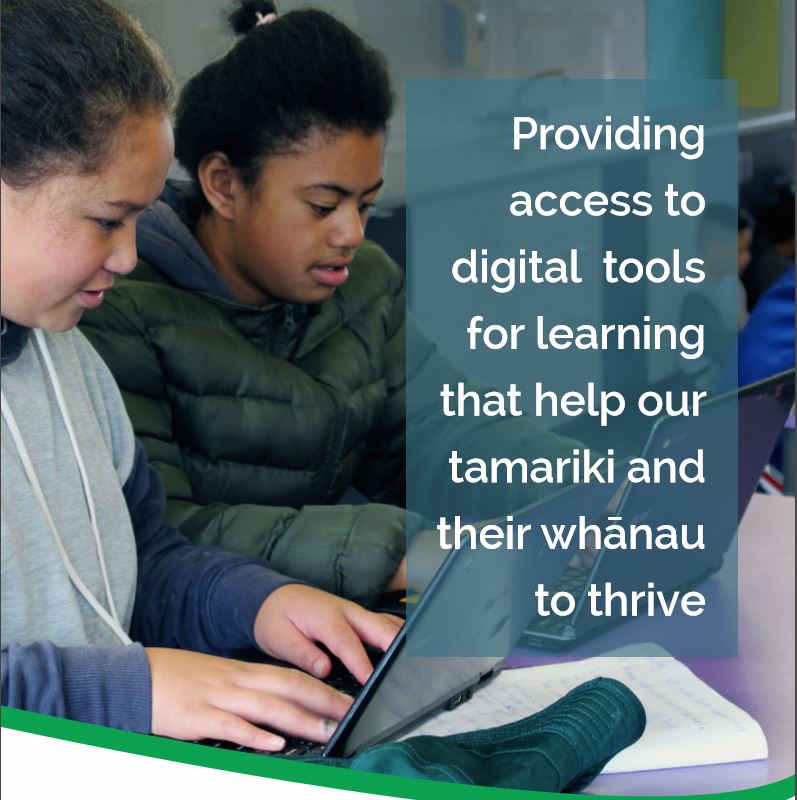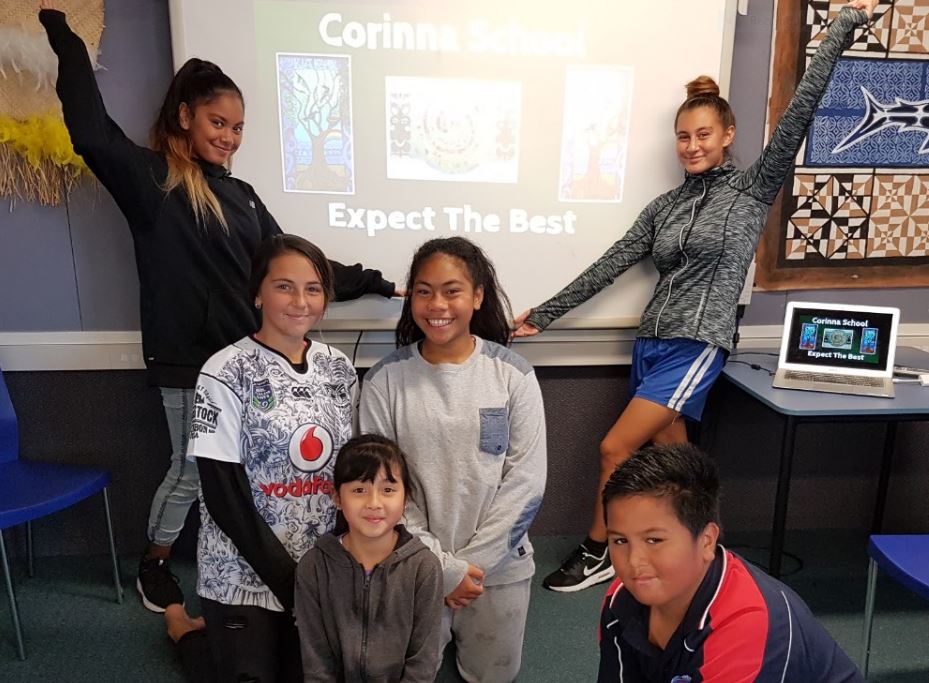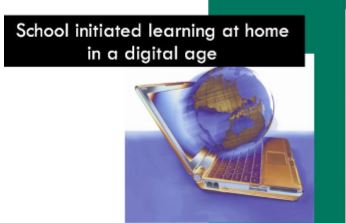On Friday 4 May, four members of Plimmerton Rotary, among other invited guests, attended a presentation at Corinna School in Cannons Creek about the use of Chrome Books.
 Introductions were made by Damian Stone, Chair of Te Mana o Kupe Trust which has made Chrome Books available to Decile 1 Schools in Porirua East for the past three years. ‘Chrome Books engage the whole family’, he said. You can read about the Trust and its work with providing access to digital tools here. TMoK_brochure
Introductions were made by Damian Stone, Chair of Te Mana o Kupe Trust which has made Chrome Books available to Decile 1 Schools in Porirua East for the past three years. ‘Chrome Books engage the whole family’, he said. You can read about the Trust and its work with providing access to digital tools here. TMoK_brochure
Funding has come from a variety of sources, the major funders being the JR Mckenzie Trust and the Todd Foundation. Other funding has been received from Wellington Community Trust, the NZ Community Trust and TG McCarthy Trust. These funds have helped the Trust to provide the supply of Chrome Books. It has also enabled the school to provide WiFi boxes for $10 each so that families have WiFi at home.
Te Mana o Kupe is now looking for funding to enable it to continue its work, including funding research into the outcomes of the project.
 Our hosts were a group of
Our hosts were a group of
- Anahera and Eva – Year 8
- Prestigious and Jillian – Year 8
- Hillary – year 5 and Kastro – year 7
Their presentation is attached but it doesn’t tell the full story. 2018_Chrome_Book_Presentation
(Editor's note: When you click on the power point presentation, it will download, probably in the bottom left of your screen. If you click on it, it will open).
Using their Chrome Books, students blog about their learning stories and it has become obvious that creativity is one bonus that has emerged since the Chrome Books arrived. It has also been possible for them to improve their writing skills. ‘Chrome Books help our learning because we can do research, and it helps our spelling’, said one student. ‘You remember to bring your Chrome Book back to school and you can erase mistakes more easily’.
Pooling and sharing their ideas
Each student enters into a Kawa of Care, an agreement between teachers, parents, the principal and children so that they can be responsible Chrome Book users, including such things as internet safety, and ‘never share your password’. The families of students in years 4-8 are encouraged to invest in their children’s education and development. 90% do and, after three years, students own their Chrome Books, provided they have passed the Kawa of Care.
We wondered whether Chrome Books would help the students to do better work. Hillary said ‘it would be the same’ but although the work might be the same on paper, the use of Chrome Books enables a teacher to give instant feedback. This means they have constant in-time communicating on their work. The speed with which the feedback is given helps the students to improve their work as they go. Integrating the feedback and re-working their writing almost immediately is a skill that needs to be taught and assessment of what they produce looks at whether they have been willing and able to make suggested changes along the way.
Families pay $4 a week for three years, after which the student owns the Chrome Book. Half a million dollars has been invested by the parents over three years. All Chrome Books are insured and are guaranteed for three years. In the first year (2014) screens got damaged and although they were covered by insurance there was a $50 excess. Not only is there no excess now, there are fewer breakages and the children are learning to fix screens.
Principal, Michele Whiting, said that e-Learning has gathered pace in the past 10 years. Two teachers decided to turn their classes into IT classes. This was painful and slow but it was the only way. There was a 100%
Corinna has introduced workshops for teachers to upskill and gradually the teachers have become more and more capable until now when all the teachers are fairly confident. Last year, five teachers did a postgraduate paper on the pedagogy of IT.
 Dr Louise Starkey of Victoria University’s School of Education has done a research project across the cluster of schools involved in the project. Michele showed the data that had been collected and the cluster report on the use of netbooks and student achievement. Here are the charts. Achievement_Data_Comparison
Dr Louise Starkey of Victoria University’s School of Education has done a research project across the cluster of schools involved in the project. Michele showed the data that had been collected and the cluster report on the use of netbooks and student achievement. Here are the charts. Achievement_Data_Comparison
This data showed that those with Chrome Books were achieving at a higher level than those without. Over the whole area of writing
Michele was asked how the project had impacted at home? She replied that there are four factors for learning:
- Whanau
- Relationships
- High expectations
Pedigogy
‘Chrome Books create a very effective way of engaging with whanau. Parents can invest in their children which results in education with dignity’, she said. She told us that one teacher had said. ‘I can get students learning in a day what used to take me a week’.
